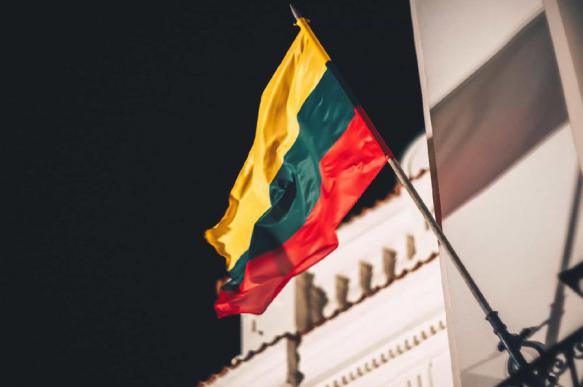
For more than a quarter of a century, the Lithuanians had been fighting with the "terrible" eastern neighbor, building the tolerant society while demolishing the industry that they had inherited from the USSR. However, they woke up to realise that the state that еун have built is a bad state.
Lithuania and Putin
This was announced on January 17 by President Gitanas Nauseda.
"We made a mistake in allowing the economy to develop according to the principles and in the conditions of the Wild West for a long time. When those having better arms and more friends dominate, there is no space left for those who are smaller, weaker, and for those who think about common good," President of Lithuania Gitanas Nauseda said, Delfi website reports.
According to him, while most countries "with a similar fate were looking for balance," Lithuania had left its state on a starvation diet. The president, however, did not give any examples of successful countries with a "similar fate."
Nauseda declares paradox in the development of Lithuania
"On the one hand, we boast that since joining the EU we have been rapidly moving towards an average GDP per person, but on the other hand, we blush because of our worst indicators of disunity in society."
"This discrepancy can be explained by only one thing: failures in the sphere of social and economic policy. We had no compass for using economic progress, and today we have the situation that we have," Nauseda said.
According to the president, it is very important to put the tax system so that it is "a community system of people, but not a farmyard."
Lithuanian economist, professor Boguslav Gruzhevsky, shared his views about what to do to put things in order.
"Taxes need to be raised, there is no other way, but this must be done safely not to scare weak groups and not to scare investors," Gruzhevsky said.
By weak groups, he means pensioners, people with low incomes, unskilled workers whose income is less than 700-800 euros per person, and, of course, rural residents.
In other words, the disunity of society in Lithuania, which has become threatening due to the growing inequality, must be remedied by raising taxes, which, as a rule, becomes a burden on the shoulders of the middle class, leads to its impoverishment and even greater stratification.
Gruzhevsky sees the "Wild West" in the following:
- in nepotism, when politicians can use their powers to employ relatives and friends or to enrich themselves illegally;
- in education, where the low level of knowledge of students does not reach the minimum;
- in the energy sector, in which the use of fuel has decreased;
- in raising prices - especially for cheap goods.
"The decline in small business in the agricultural sector, as well as poverty, has negatively affected social development. Salaries are low," Gruzhevsky said.
Is there anyone to be taxed?
The enlightenment of former republics of the USSR
It is indicative that it was not only the Lithuanian president, but also Yulia Tymoshenko, the chairwoman of Ukraine's Fatherland Party, who woke up and smelled the coffee. She announced that Ukraine was going through the "liquidation process." According to her, Kiev has lost independence and remains under external supervision.
Why did Lithuania suddenly stop admiring the West and the market economy? There was no market economy in Lithuania - the state lived on subsidies from the EU. The EU draft budget for 2021-2027 suggests reducing subsidies to Lithuania by 27%, which will cost the country 3-4% of its GDP growth. In a nutshell, it goes about almost all of its growth achieved in previous years.
Depopulation, stagnation in the primary export sectors of agriculture persists encourages the country to cooperation with Russia.
Will Lithuania reach constructive cooperation with Moscow?
Sergei Rekeda, Director General of the Center for the Study of Integration Prospects, said in an interview with Pravda.Ru that Lithuania will not ask Russia to increase transit via Lithuanian ports, because politics has always been above economy for the Baltic States.
"Therefore, there can be no special foreign policy changes there. They have their own geopolitical function, it is primary for them. They may raise taxes, introduce new taxes in order to fill the budget. There will be more policy decisions to manage the economic situation," Sergey Rekeda said.
Sergei Rekeda noted that Lithuania has realized that the neoliberal model of the economy with the minimal intervention of the government is no longer viable. One needs to intervene in economy at a much greater extent, as many other countries of the world practice. Nauseda will try to add more tools to regulate the economy, but they will most likely be targeted measures.
No comments :
Post a Comment